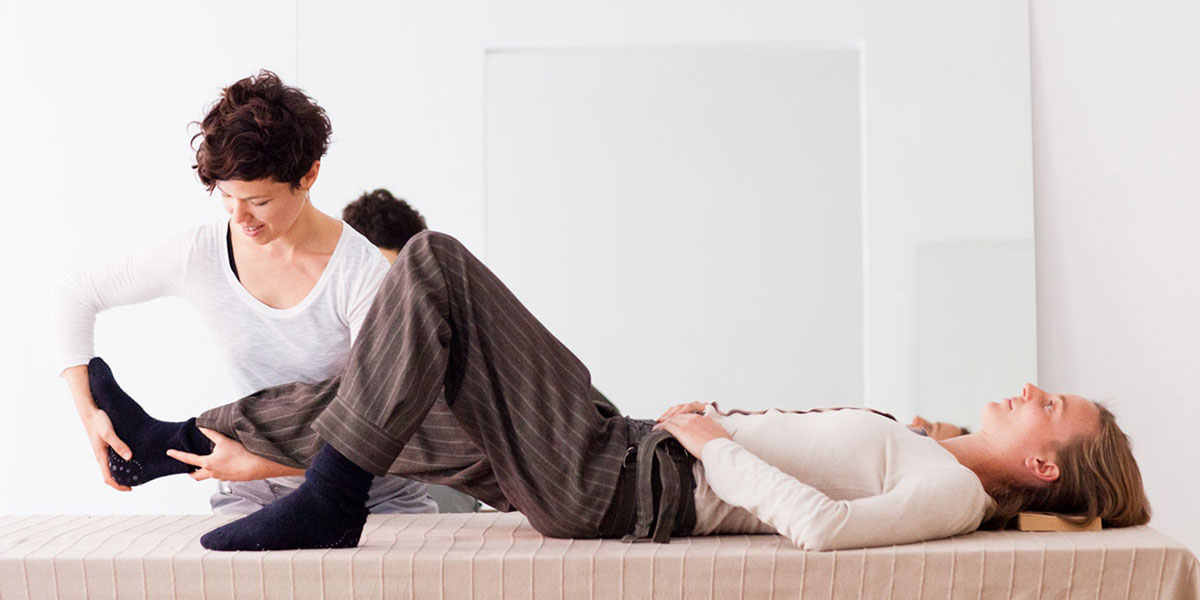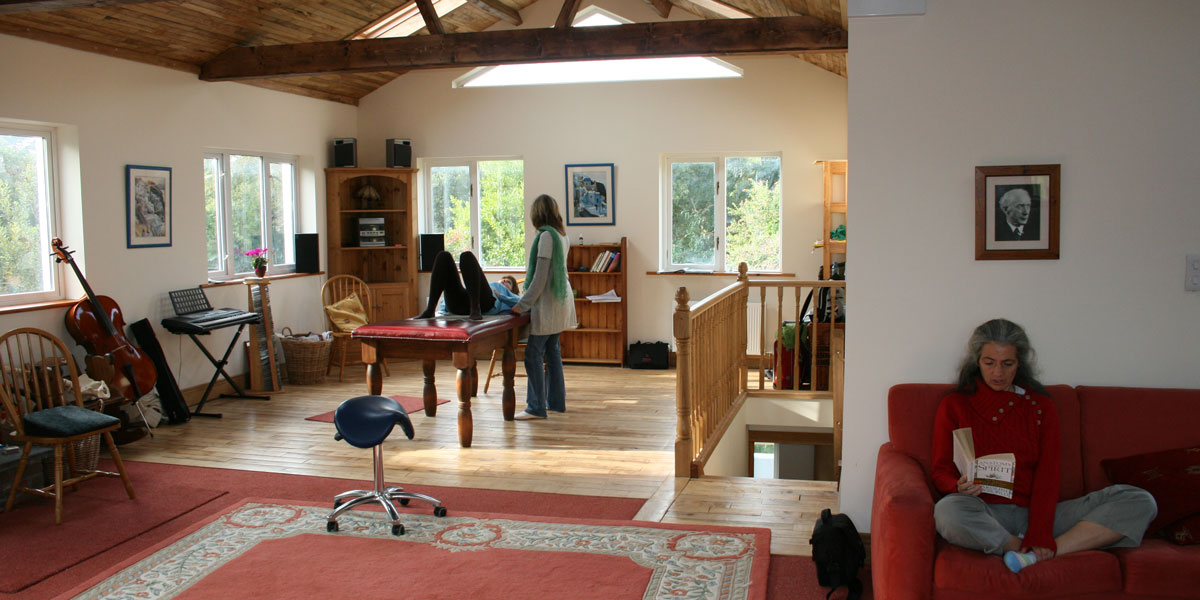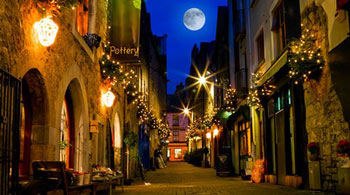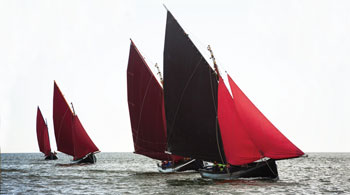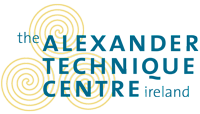THE ALEXANDER TECHNIQUE CENTRE IRELAND
The centre offers a wide range of training from individual lessons to a three year teacher training programme.
It has two aims: firstly, to train Alexander Technique teachers by providing the required three year course, and secondly, to provide an opportunity to those who benefit from the Technique to visit for shorter periods to deepen their understanding of it, without necessarily qualifying to be a teacher.
The Alexander Technique Training Programme is the first and still the only one in Ireland. The college was set up in 1998 and is approved by the Society of Teachers of the Alexander Technique (STAT) and the Irish Society of Alexander Technique Teachers (ISATT).
The Director of Training is Richard Brennan, and the Assistant Director is Glenna Batson.
A completely different kind of education
"It is now possible to conceive of a totally new type of education affecting the entire range of human activity, from the physiological, through the intellectual, moral, and practical, to the spiritual... The Alexander Technique gives us all the things we have been looking for in a system of physical education; relief from strain due to maladjustment and consequent improvement in physical and mental health; and along with this a heightening of consciousness on all levels. We cannot ask more from any system; nor, if we seriously desire to alter human beings in a desirable direction, can we ask any less?"
Aldous Huxley
Visit the Training Centre
If you are thinking of training you are welcome to visit the training course for one week free of charge. If you do not wish to train, but would like to expand your knowledge of the Alexander Technique then you are welcome to attend for a day, a week or a month and you pay by the day.
EVENTS
Throughout the year there are special weeks that may be of particular interest to you. These range from performers weeks to practical anatomy weeks and introductory weeks. Here are the special events that are coming up soon. Please contact us for more information.

Open Week
Come to the college for a day or a week and join in the sessions. 3 times a year. Places limited.
14th - 18th May 2020

Visiting Alexander Teachers
Internationally renowned Alexander teachers visit several times a year to teach at the centre.
16-17 Oct 2019: Jeando Masoero

Performance Week (free)
All musicians, actors, singers and public speakers welcome.
12th - 15th February 2020
Congratulations!
Congratulations to Enrique Zaldua on his graduation in May. We wish him luck in his new and very rewarding career ahead.
Download brochure >
Download the low resolution on-screen version of our brochure, below. File size 1.94Mb. Suitable for sending via email. (When viewing in Adobe Reader, we recommend selecting the View menu - Page Display - Two Page View, and Show Cover in Two Page View).
If you would like a printed version of the brochure sent to you, please contact us.
ATC Brochure (pdf)
What is the Alexander Technique?
The Alexander Technique is used throughout the world for a great many reasons. For example you may be one of the millions of people who suffer regularly from backache, a stiff neck, headaches, arthritis or other symptoms for which there seems to be no answer. The Alexander Technique does not set out to cure specific symptoms, but it does help you to uncover and change the harmful and unconscious habitual patterns, which all too often are the underlying cause of your problem.
Or you may be suffering from stress as a result of work, or for domestic reasons. The Technique will help you look more closely at your reactions in everyday situations, and enable you to see for yourself how you contribute to the build-up of excessive tension in your life. By changing the way you react to various situations you can drastically reduce your stress levels, thus reducing the likelihood of high blood pressure, stomach ulcers or even heart attacks and strokes.
Perhaps you have pain or discomfort without knowing why. The technique can help you to see that it could be your postural habits which are the root cause of your problem. You may be pregnant and want to look after your body in order to give your baby and yourself the best chance of a healthy pregnancy and a natural and easier birth.
If you are a musician, actor, dancer, singer or sports person, you rely on your body to function at its peak efficiency. The Alexander Technique will provide you with a means of releasing excessive tension, enabling you to perform much closer to your maximum ability with minimum effort. It is interesting to note that many of the main music and drama colleges now include the Alexander Technique as part of their curriculum. In fact the Alexander Technique can improve your performance, whatever your chosen activity.
Even if you are in good health, you can use the Alexander Technique to increase your awareness and take more responsibility for your mental and physical wellbeing. You can use it to discover more about yourself, make more conscious choices, and prevent ill health later on in life.
These are only some of the more common applications, and in fact the Technique can be used by practically anyone to improve the functioning of the entire body. The benefits are enormous - not only physically, but mentally and emotionally as well. In short the Technique will help you to be more aware of any action you perform thus enabling you to live in the present moment.
Finding the right course for you
Individual Lessons
If you are suffering from a painful condition or prefer to learn individually then individual sessions are available at a time of your choosing. These last between 30 - 40 minutes depending on the problem and can be arranged anytime that is convenient to you.
Morning Sessions
This is a six week course on Tuesday mornings from 10.00 to 12.00. It is an introduction to the technique and covers the basic principles and philosophy behind the technique. Please contact the centre to find out the next starting date.
One Day Courses
These courses take place on most Wednesdays throughout the year and you are welcome to attend for just one day or five consecutive Wednesdays in a row. Each week will have a different theme so each day will be different.
Weekend Courses
Weekend courses can be residential or non-residential and take place near Galway and Dublin several times a year.
One Week Courses
These courses take place at the centre all the year round, and there are also one week courses held each summer in Dublin and Southern Spain.
Three Year Alexander Teacher Training Course
This course consists of 10 terms and will give you all the tools you will need to become a confident teacher and fully prepare you for this very rewarding profession. On successful completion of the training course you will receive an Alexander teacher's training certificate from the college and will be eligible to apply to join the Irish Society of the Alexander Technique (ISATT) and the Society of Teachers of the Alexander Technique (STAT). The STAT certificate is internationally recognised.
The Three-Year Teacher Training

"I couldn't have hoped for better people or a better place to have trained. Thank you so much."
Brian MacNamara, now an Alexander teacher in Dublin

"I have found that everyone on the course without exception has been touched in a profound way. It has given me great respect of myself."
Frederico Betti, now an Alexander teacher in Clare

"Definitely the best three years of my life!"
Sarah Compton, now an Alexander teacher in Leitrim

"This course has been a life saver for me. I had tried lots of different remedies and ways, but somehow life had closed in. The support and friendship that I have received on the course has been invaluable. The technique has also freed me from backache, something I would not have believed possible."
Pádraig Ó Fátharta, now an Alexander teacher in Connemara, Galway

"I have had the most interesting three years of my life."
Maria O'Neill, now an Alexander teacher in Kildare

"The course has made me stronger in myself."
Caroline Martin, now an Alexander teacher in Roscommon

"Congratulations on your 100% success rate in training Alexander teachers. It is a wonderful achievement and a testimony to the outstanding quality of the teaching at the college. I am so grateful for the unconditional support that I have received during the course, thank you so much for giving me the space to be me."
Niall Kelly, now an Alexander teacher in Limerick

"I have learned what it means to be truly present, I have learned to let go of the feeling that I need to achieve something or think that I am right, or better than my fellow human beings in order to have a sense of self-worth. But most of all I have learned not to separate myself into segments and now I feel whole again. I have also learned that there is much more to be learned and am now enjoying the journey of self-discovery."
Stephanie McDonald, now an Alexander Teacher in Clare

"I love the work - it is so refreshing."
Veronique Druesne, now an Alexander teacher in Cork

"Best three years of my life, special place, special people. Learnt more than I ever expected, simply life changing. Keep up the good work. As a job it is also one of the most rewarding, to see people change over a course of lessons or on a weekend workshop is very special."
Martina Maloney, now an Alexander teacher in Mullingar.
Previous
Next
Ireland's only Alexander Technique Teacher Training Course
The fundamental purpose of the course is to facilitate learning the Alexander Technique in an atmosphere of enjoyment and exploration, so that you can develop the skills to be able to teach the technique confidently to others. This is a hugely enriching and rewarding experience.
It is also possible to join the course for a day, a week or a term if you do not want to teach, but just want to learn for your own personal benefit.
The course and certification is internationally recognised and the aim of the directors is to make this course the best in Europe, so we invite the most experienced and stimulating teachers from all over the world. This gives a rich mixture of experiences and teaching techniques over the duration of the course. As a result, students from many different countries are attracted to study here, including so far: Brazil, Finland, France, Germany, Ireland, Italy, Korea, Norway, Poland, Spain, Switzerland, UK, and USA. People who live outside the EU who wish to do the course can contact the centre for details about how to obtain a visa.
As well as learning the fundamental principles of the Technique such as awareness, choice and freedom of movement, you will learn practical anatomy and physiology, voice work, and how to improve breathing naturally. Throughout the course there will be an interesting discussion each week on a topic drawn from Alexander's books.
Other books on the technique and related subjects will also be studied and discussed. Interaction between the individuals in the group is also used as a preparation for presenting and speaking about the Technique in one's own individual style, with confidence and openness. Students will gain awareness of the possible emotional effects of Alexander work, and how to deal with them. The student's progress is assessed in an on-going way, both practically and by means of some written work. Many musicians and performers are attracted to this course because of the dynamic and lively atmosphere.
As part of their study second and third years students attend a week long residential course in Dublin where they work on members of the public who are new to the technique. There is also a weekly student clinic where third year students work on members of the public with little or no previous experience of the Technique.
The course runs for just over three years and each year consists of 30 weeks, divided into three terms - autumn, spring and summer. The college is open
from Tuesday afternoon until Friday lunchtime.
First year >
During the first year of the training the core-work is primarily devoted to learning how to improve your own self-awareness and 'use' of your body as a
whole. It involves a process of change and individual development, which builds the foundation for your work with others in the future. You will learn how to
'put hands on' with other participants on the course.
You will also study the fundamental principles and procedures of the Technique in depth.
Second year >
In the second year, as the growing awareness of the 'use' of the self continues, there will be more emphasis on working on other students. You will
deepen your skill in using your hands to help release tension in other people. You will also build up your practical knowledge about ailments that pupils
commonly present (e.g. back-pain, RSI, asthma, arthritis etc.).
Third year >
In the third year you will progress from practising on fellow students to supervised and then unsupervised practise on members of the public. You will also
draw on case study material. The continuing self-improvement, knowledge, skills and individual expression developed in the first two years are enhanced by being put into practice. The main aim for the last year is to refine your practical skills and build confidence in your ability to teach the Technique.
Specific Content of the Curriculum >
A large part of the course consists of practical Alexander-work. This work aims for a continuous development of the understanding of and feeling for the different principles of the Alexander Technique, an understanding that can continue to evolve even after completing the course. The principles that are discussed in great detail include: primary control, inhibition, how the way you perform actions affects the functioning of the body, directions, non-end gaining, consciously planning the way in which you perform actions, doing and non-doing, faulty sensory perception, psycho-physical integration and force of habit.
The most common elements of an Alexander lesson are covered, namely: observation of oneself and others during standing, sitting, walking, bending, constructive lying down (semisupine), positions of mechanical advantage and breathing. We will also examine our use while performing a whole range of everyday activities such as eating, drinking, speaking, writing, washing-up, etc. These principles and procedures are the building blocks on which the technique is founded. It is therefore of fundamental importance that each student becomes very familiar with them to obtain a well co-ordinated use of their body, mind and emotions.
Students learn the technique step-by-step, guided by experienced teachers, both individually and in small groups. The rest of the time the students of different years work together so that they can exchange their ideas and experiences.
Weekly Course Content >
During each week each student has:
- Individual short lessons every day.
- Two to three half-hour "hands-on" groups per week.
- Some form of directed "daily-activity" or established "procedure", e.g. chair-work, table-work, whispered 'ah', standing, walking, waiting, sitting, squatting, lying and rising etc.
- A lecture/discussion period every day, covering Alexander's books, related literature, anatomy or physiology.
Students are also expected to work on themselves both during course hours and outside of course hours, and they have access to a growing library of relevant books, articles and videos.
Courses Hours and Terms >
The complete training consists of 10 terms and the course hours are currently as follows:
2.30pm till 6.30pm on Tuesday
9.30am till 4pm on Wednesday
9.30am till 1.30pm on Thursday
9.00 - 12.00am on Friday
NB Hours may change on weeks that a visiting teacher is present.
There will also be a certain amount of personal study outside course hours.
Term Dates >
Autumn 2019
Tuesday 17th September - Thursday 5th December
(Half term week 28th October - 3rd November)
Spring 2020
Tuesday 7th January - Thursday 26th March
(Half term week 17th - 25th February)
Summer 2020
Tuesday 21st April - Thursday 25th June
(Half term week 25th May - 7th June)
Testimonials >
"I couldn't have hoped for better people or a better place to have trained. Thank you so much."
- Brian MacNamara, now an Alexander teacher in Dublin
"I have found that everyone on the course without exception has been touched in a profound way. It has given me great respect of myself."
- Frederico Betti, now an Alexander teacher in Clare
"Definitely the best three years of my life!"
- Sarah Compton, now an Alexander teacher in Leitrim
"This course has been a life saver for me. I had tried lots of different remedies and ways, but somehow life had closed in. The support and friendship that I have received on the course has been invaluable. The technique has also freed me from backache, something I would not have believed possible."
- Pádraig Ó Fátharta, now an Alexander teacher in Connemara, Galway
"I have had the most interesting three years of my life."
- Maria O'Neill, now an Alexander teacher in Kildare
"The course has made me stronger in myself."
- Caroline Martin, now an Alexander teacher in Roscommon
"Congratulations on your 100% success rate in training Alexander teachers. It is a wonderful achievement and a testimony to the outstanding quality of the teaching at the college. I am so grateful for the unconditional support that I have received during the course, thank you so much for giving me the space to be me."
- Niall Kelly, now an Alexander teacher in Limerick
"I have learned what it means to be truly present, I have learned to let go of the feeling that I need to achieve something or think that I am right, or better than my fellow human beings in order to have a sense of self-worth. But most of all I have learned not to separate myself into segments and now I feel whole again. I have also learned that there is much more to be learned and am now enjoying the journey of self-discovery."
- Stephanie McDonald, now an Alexander Teacher in Clare
"I love the work - it is so refreshing."
- Veronique Druesne, now an Alexander teacher in Cork
"Best three years of my life, special place, special people. Learnt more than I ever expected, simply life changing. Keep up the good work. As a job it is also one of the most rewarding, to see people change over a course of lessons or on a weekend workshop is very special."
- Martina Maloney, now an Alexander teacher in Mullingar.
How to Apply >
There are two places available at the college in September 2019, and two more places in January 2020.
If you have any questions about the course prior to application, you can write, email or phone the centre first.
To apply for a place on the course please download our application form, complete it and send email or send it by post - see the Contact section for email and postal addresses.
Application form (pdf)
Teaching Staff
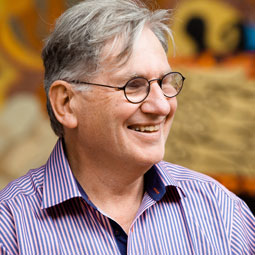
Richard Brennan
Director
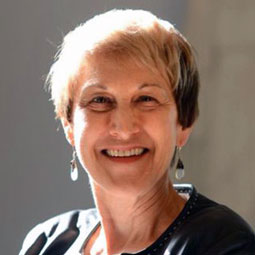
Glenna Batson
Assistant Director
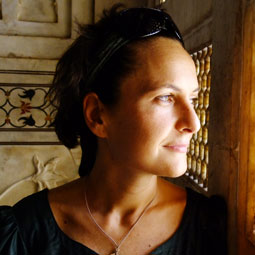
Alazne Larrinaga
Student Liaison
About Richard Brennan >
Richard established the Alexander Technique Training Course in Galway in 1998, and so far over 40 Alexander teachers have graduated. The course is approved by the Society of Teachers of the Alexander Technique (STAT) and the Irish Society of Alexander Technique Teachers (ISATT).
Richard comes from a medical family, suffered back problems and discovered the Alexander Technique in 1983. He graduated from a three-year STAT Alexander Technique training course in the UK in 1989. He has written eight books on the Alexander Technique, including Back in Balance, The Alexander Technique Workbook and Change Your Posture, Change Your Life. They have been translated into twelve languages and have sold over 200,000 copies. He is co-founder and current President of The Irish Society of Alexander technique Teachers (ISATT). He was a Director of the 10th International Alexander Technique Congress, held in Limerick, Ireland in August 2015, which over 700 people attended.
He established the International Alexander Teacher's Convention in 2013, held in Dublin, Ireland and plans to hold these every few years. He travels internationally giving talks and workshops. He also lectures at various schools, colleges and universities, and gives interviews for the press and radio, and at health and healing exhibitions. He has been a pioneer in helping to make the technique accessible to thousands of people.
About Glenna Batson >
Over the last four decades, Glenna (ScD, PT, MA, ISATT, STAT) has drawn from multiple forms of dance, human movement science and somatic education as catalysts for teaching and mentoring, research, and artistic growth. Since qualifying as an Alexander Technique teacher (1989), she has advocated for the Technique by helping articulate the unique principles across disciplines. A former dancer (MA, dance education,1978), Glenna also holds a Masters and Doctorate in physical therapy (1983/2006). Since moving to Ireland in 2017, she has been actively teaching, as well as advising and facilitating dance-for-health initiatives and art-science collaborations.
Over the last four decades, Glenna has drawn from multiple forms of dance, human movement science and somatic education as catalysts for teaching and mentoring, research, and artistic growth. Since qualifying as an Alexander Technique teacher (1989), she has advocated for the Technique by helping articulate the unique principles across disciplines. A former dancer (MA, dance education,1978), Glenna also holds a Masters and Doctorate in physical therapy (1983/2006). Since moving to Ireland in 2017, she has been actively teaching, as well as advising and facilitating dance-for-health initiatives and art-science collaborations.
Glenna is professor emeritus of physical therapy at Winston-Salem State University (USA). She has received recognition for her clinical research in bringing complementary medicine approaches to performing artists and adults with disabilities. In 2007, she conducted the first clinical study of the Alexander Technique on balance in the elderly (with teacher Sarah Barker). Other research focus includes mental practice of motor imagery (Ideokinesis) post-stroke, the Feldenkrais Method® post-stroke, and improvisational dance in people living with Parkinson's disease.
About Alazne Larrinaga >
Alazne holds a BA and MA in Economics and an MA in Finance from the University of the Basque Country (UPV), Bilbao, Spain where she is originally from.
She worked for over 10 years for high-profile finance companies in Madrid, Pittsburgh, Milan and Bilbao. During her first pregnancy she suffered from back pain, which led her take her first Alexander Technique lesson with Richard Brennan in Galway, Ireland. Alazne soon came to realise the Technique's long-lasting benefits and decided to join the teacher training course in September 2012. After qualifying she went on to do a post graduate year at the college.
During her training Alazne had the chance to work with world-class dancers and musicians. Being an amateur musician and dancer herself (she plays the Basque traditional txistu, dances Basque traditional dances and has been learning the tin whistle for a few years) she is able to address issues and discomfort that may arise from these activities in an efficient manner. Alazne is responsible for student liaison.
Visiting Teachers >
Every term experienced Alexander teachers and trainers visit from training courses in other countries around the world, each giving their own unique perspective on living and teaching the Technique through their own interests and expertise. Past and future visiting teachers include:
| Harriet Anderson (AT) |
David Bainbridge (UK) |
| Ingrid Bacci (US) |
Anne Battye (UK) |
| Glenna Batson (US) |
Caren Bayer (US) |
| Federico Betti (IT) |
Alan Capel (AU) |
| Barbara Conable (US) |
Margaret Edis (IE) |
| Alexander Farkas (US) |
Diane Gaary (US) |
| Jule Gartzke (DE) |
Trish Hemmingway (UK) |
| Anne Johnson (US) |
Niall Kelly (IE) |
| Tina Kiely (IE) |
Anthony Kingsley (UK) |
| Yehuda Kuperman (IL) |
Vivien Mackie (UK) |
| Alan Mars (UK) |
Jeando Masoero (FR) |
| Melisa Matson (US) |
Flora Ojanen (US) |
| Giora Pinkas (IL) |
Rosa Luisa Rossi (CH) |
| Francien Schoonens (NL) |
Sara Shepherd (IE) |
| Azize Sterling (UK) |
Tommy Thompson(US) |
| Elisabeth Walker (UK) |
Wolfgang Weiser (SE) |
Location
The Training takes place at Kirkullen Lodge, which is situated near Moycullen in County Galway on the West Coast of Ireland.
Although it is situated in a peaceful location near lakes and beautiful countryside, it is only a few miles away from the bustling City of Galway and only four miles from the scenic coast of Galway Bay.
The stunningly beautiful areas of The Aran Islands, Connemara and the Burren are all within easy reach of the training college.
Galway City is a thriving University town with a population of around 80,000. There are all the amenities of a small busy city such as shops, theatres and cinemas. Galway is famous for its arts, literary and film festivals.
"Galway City is a delight, with its narrow streets, old stone and wooden shop fronts, good restaurants and bustling pubs and has always attracted a crowd of
musicians, artists, intellectuals and young people.'
Lonely Planet Travel Guide
For visitor information see
www.discoverireland.ie and
www.visitgalway.ie




